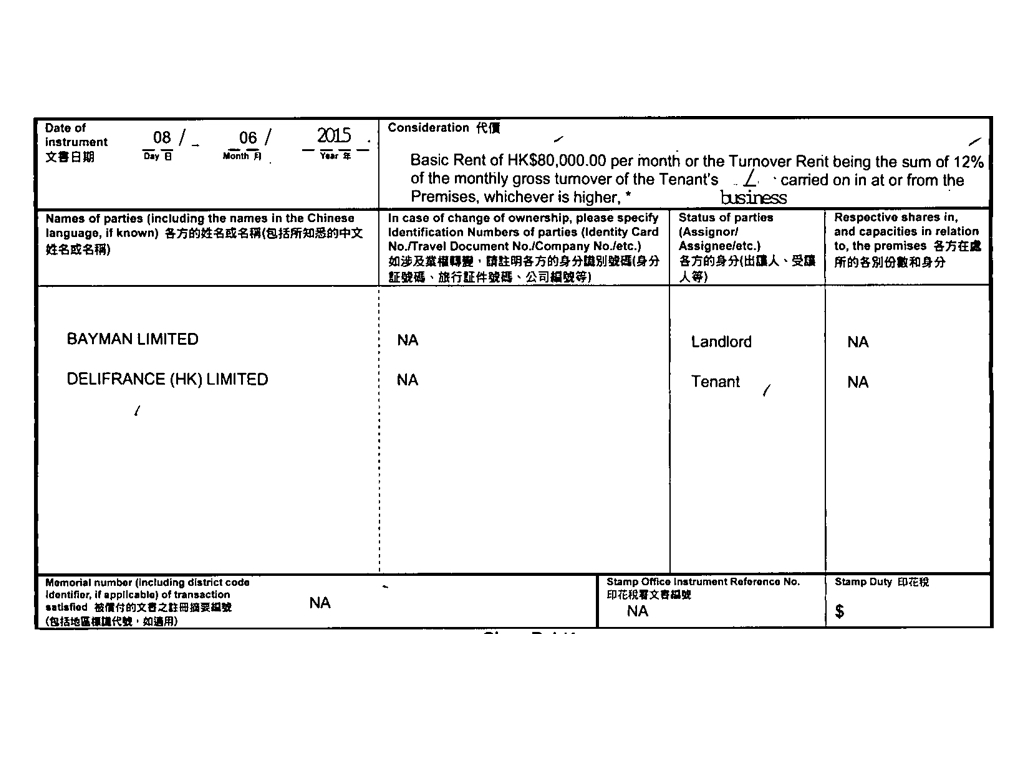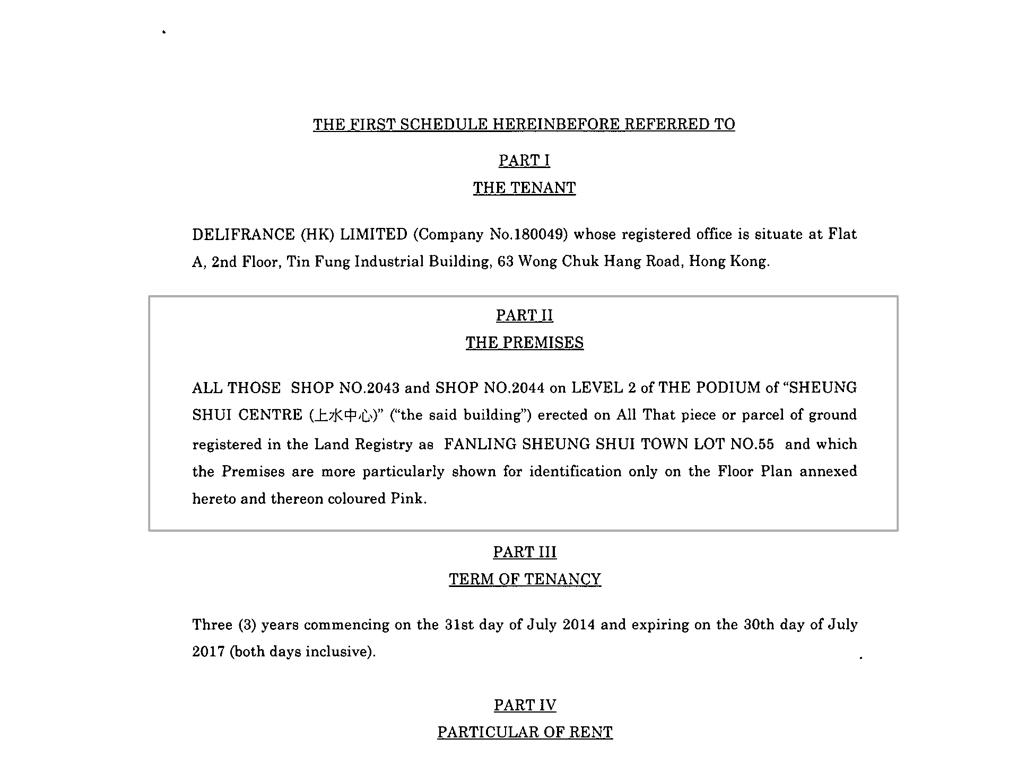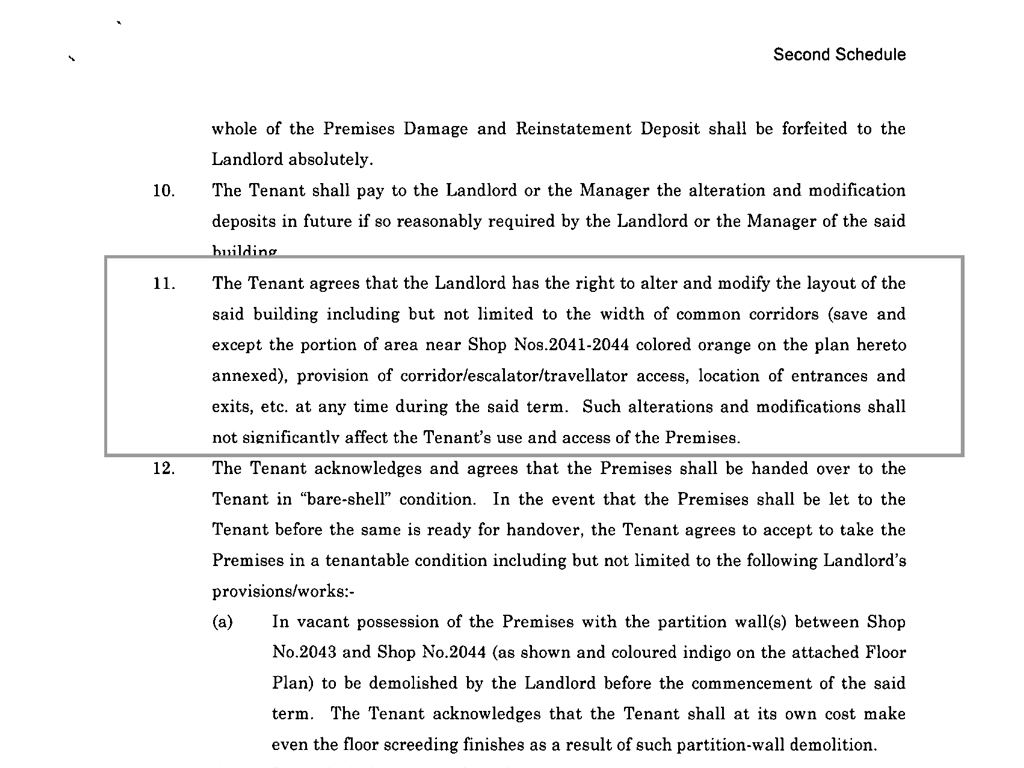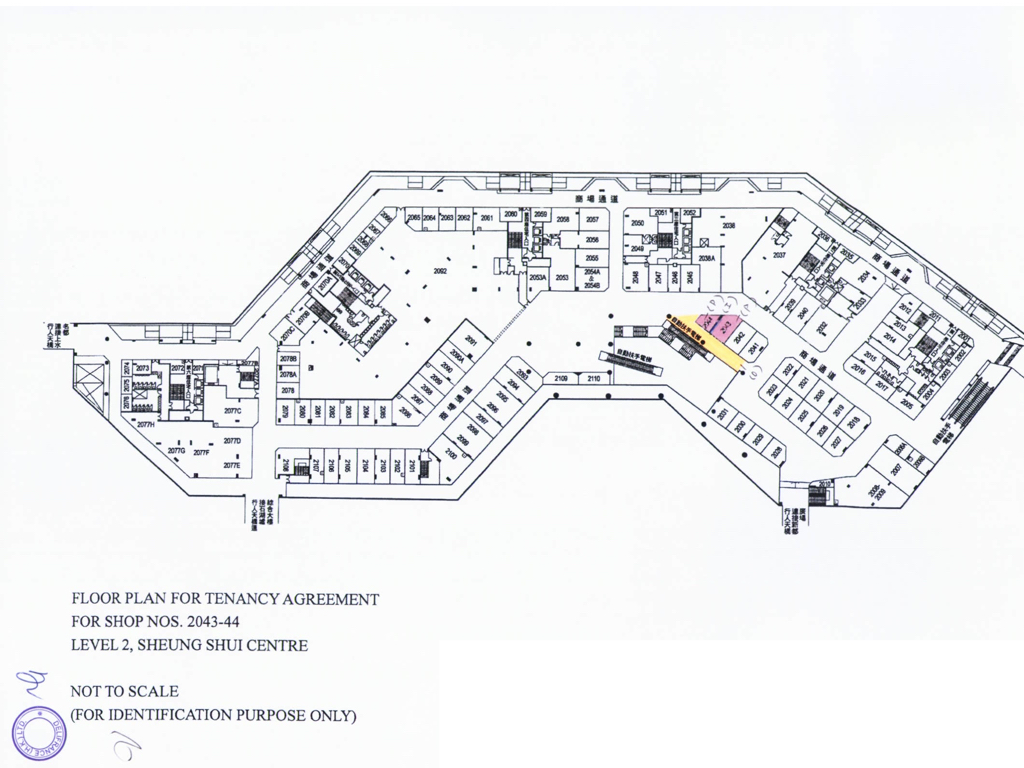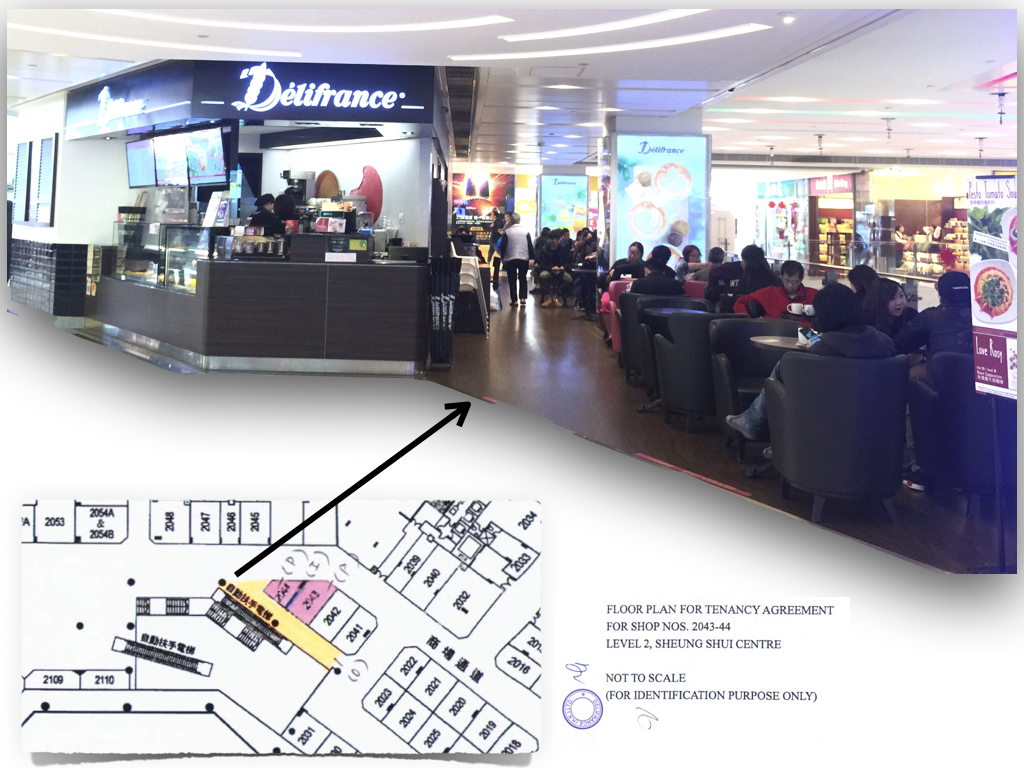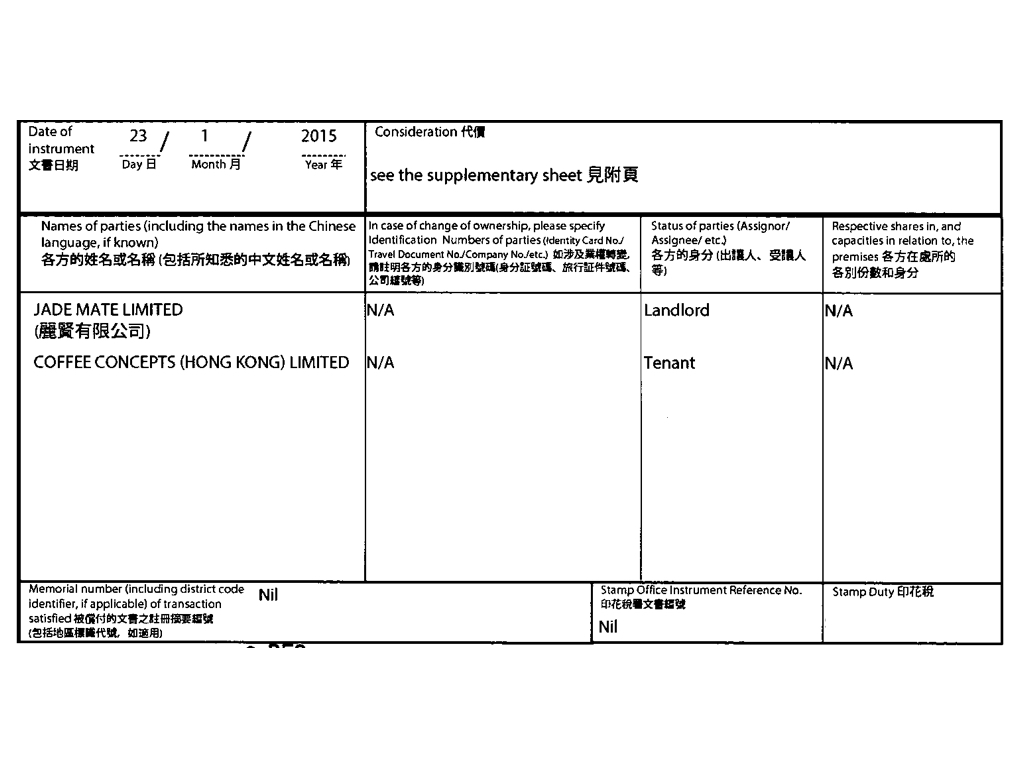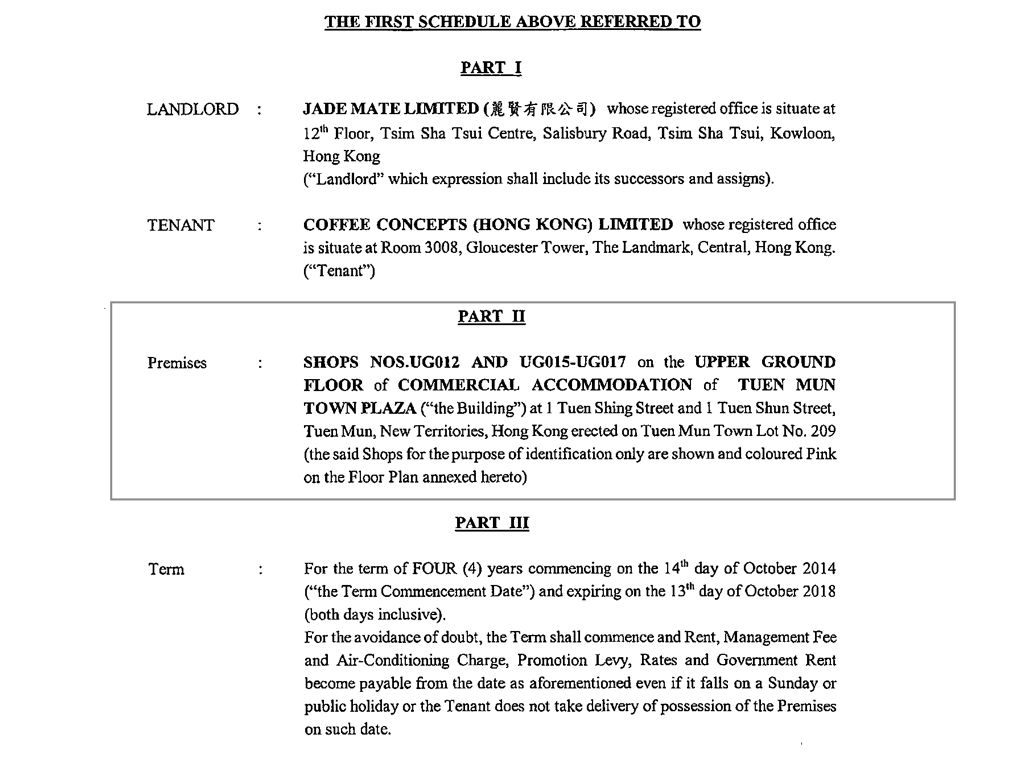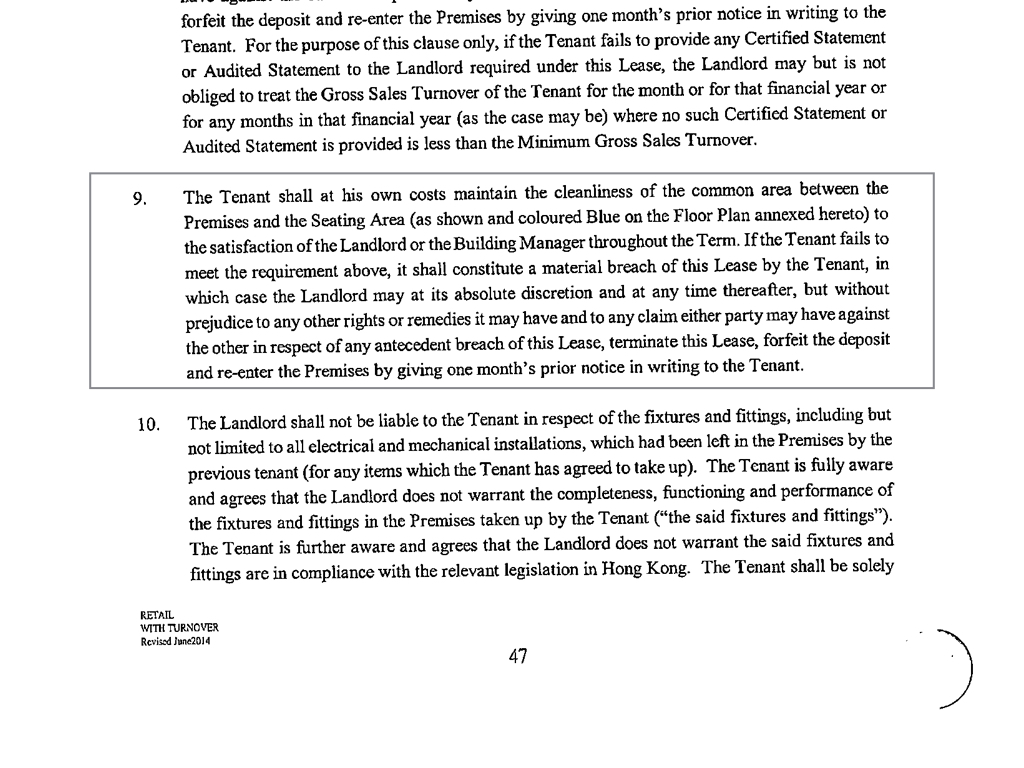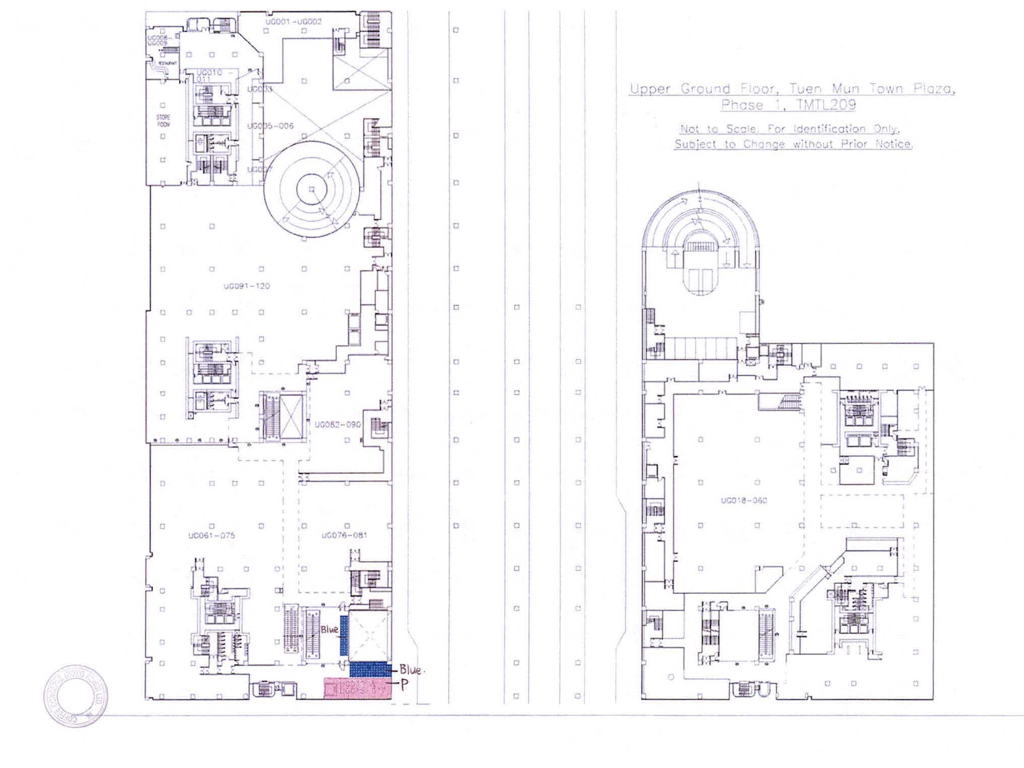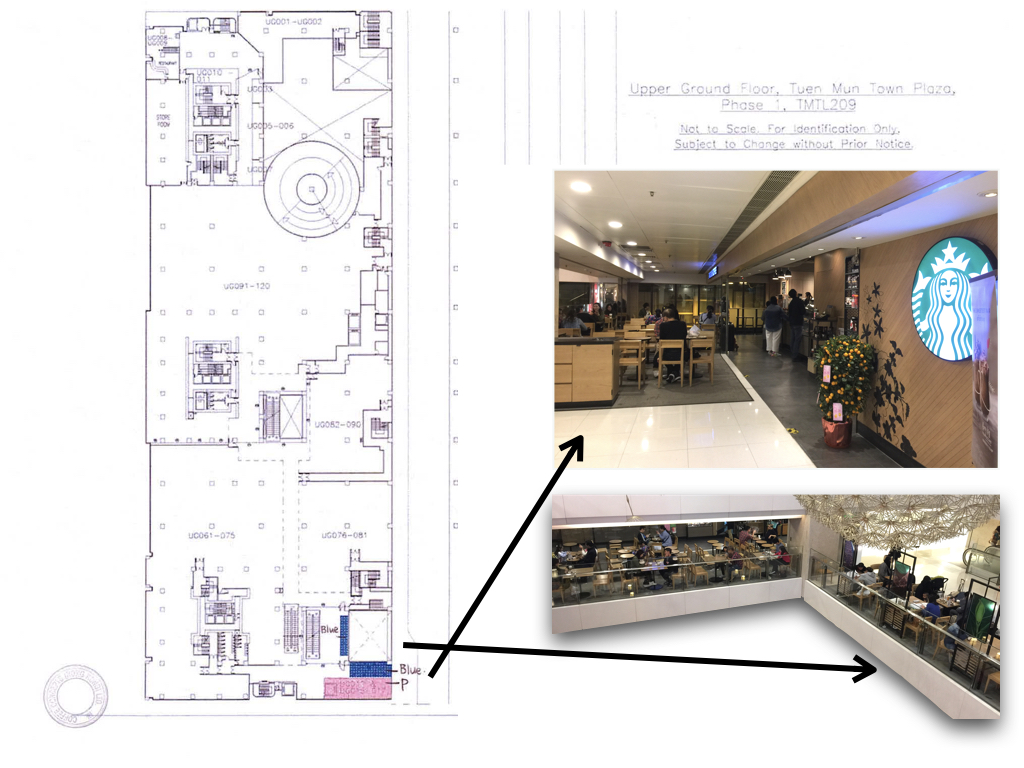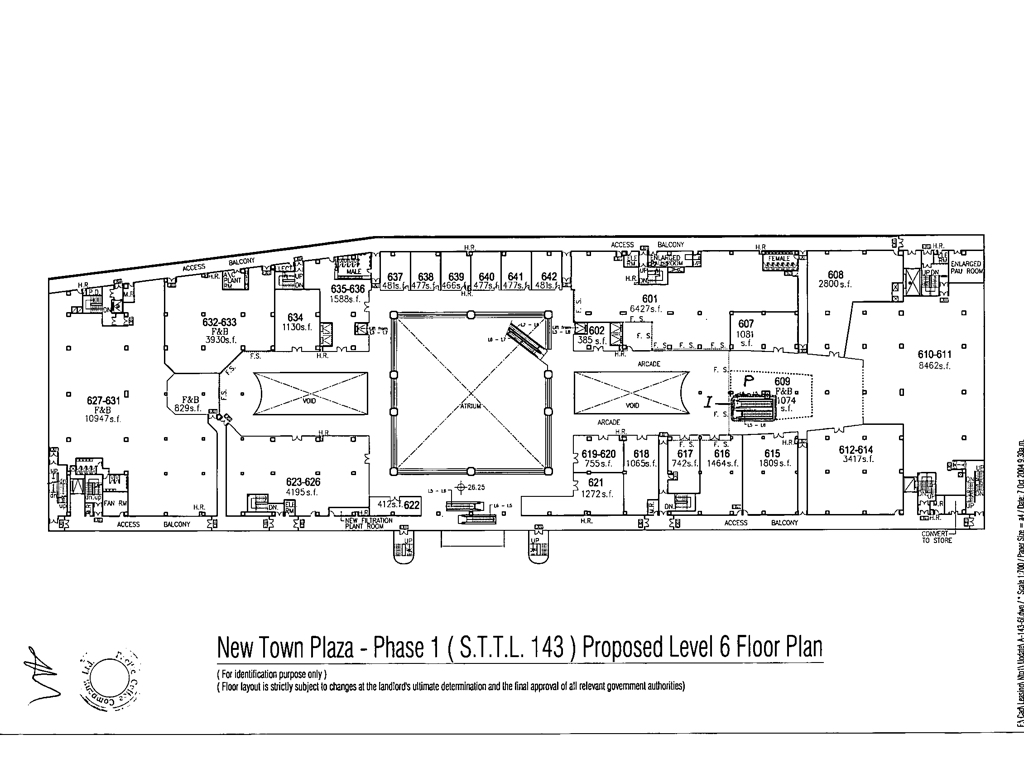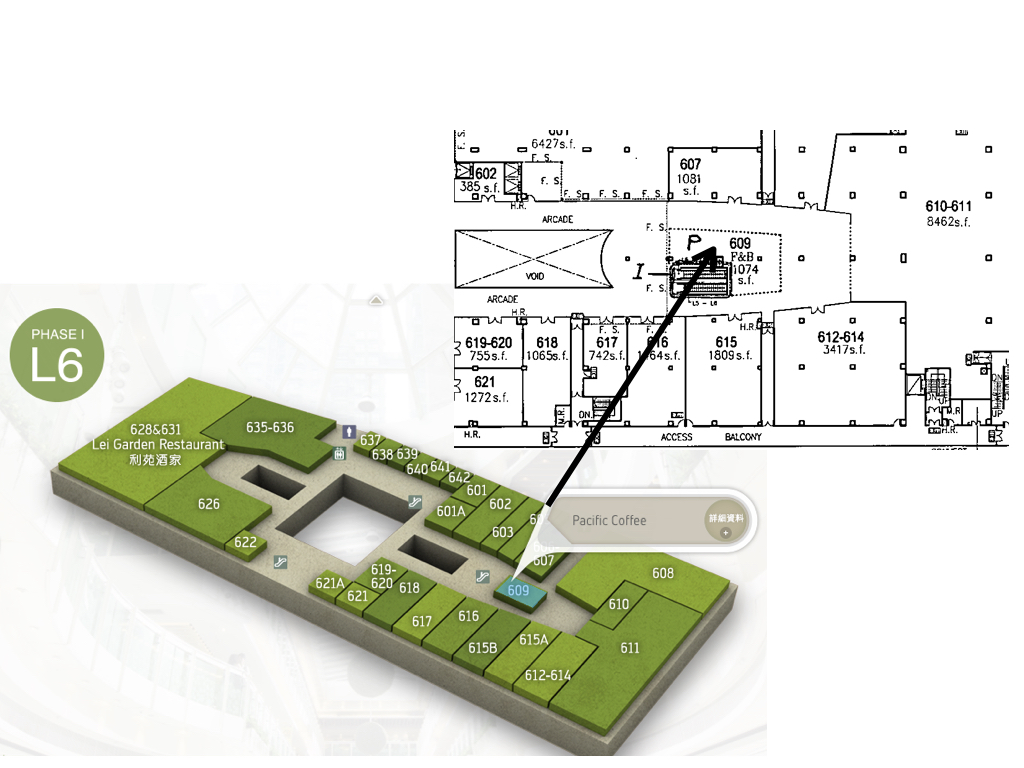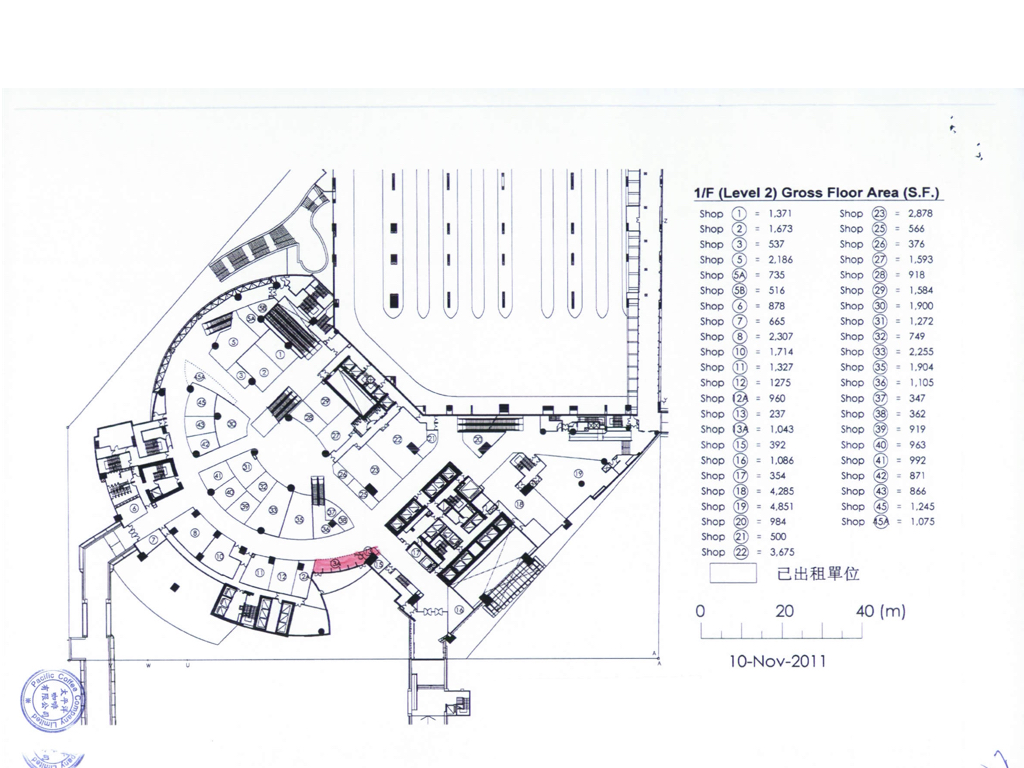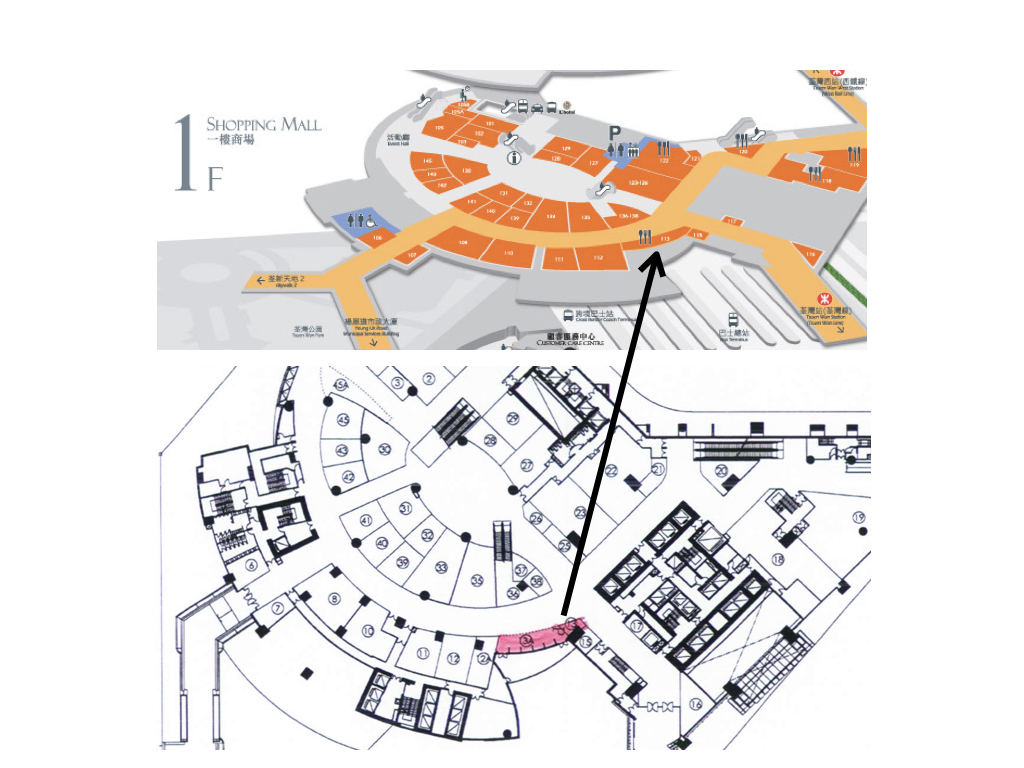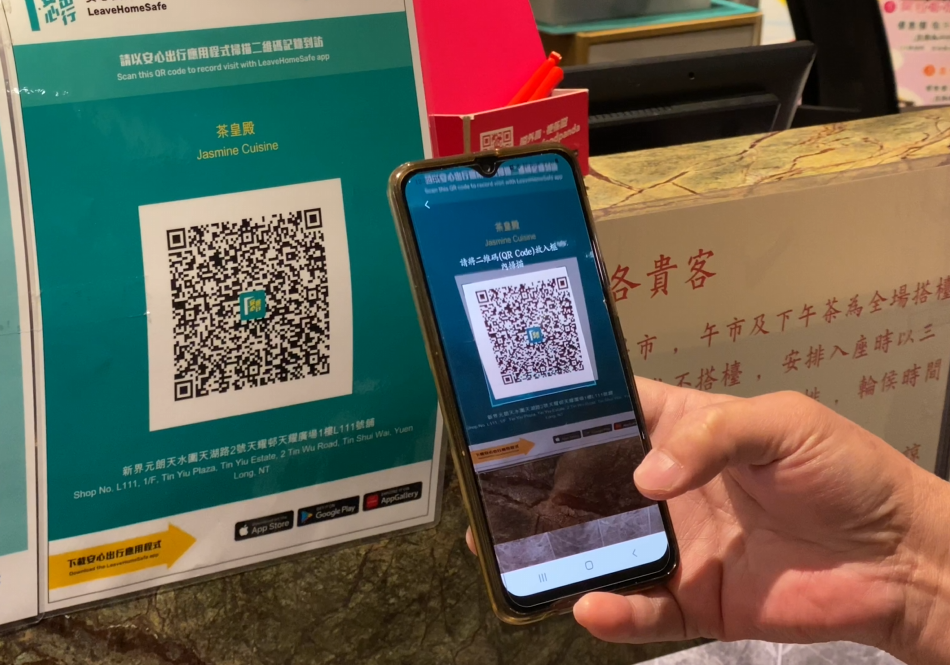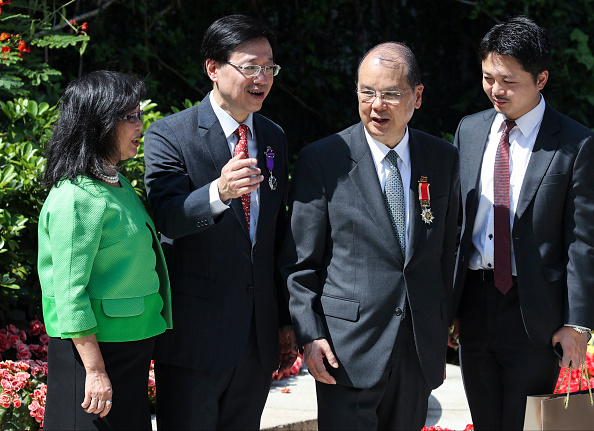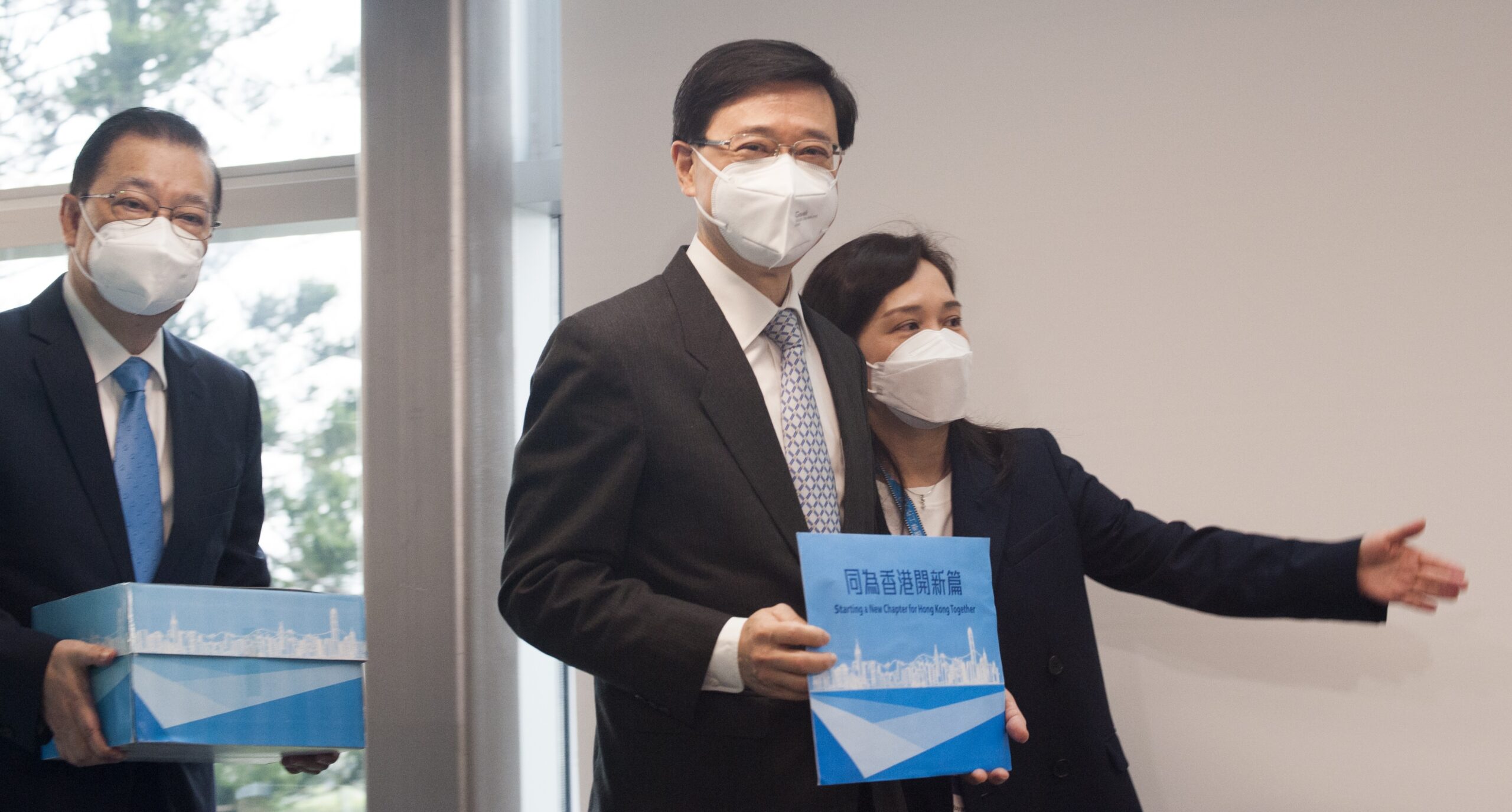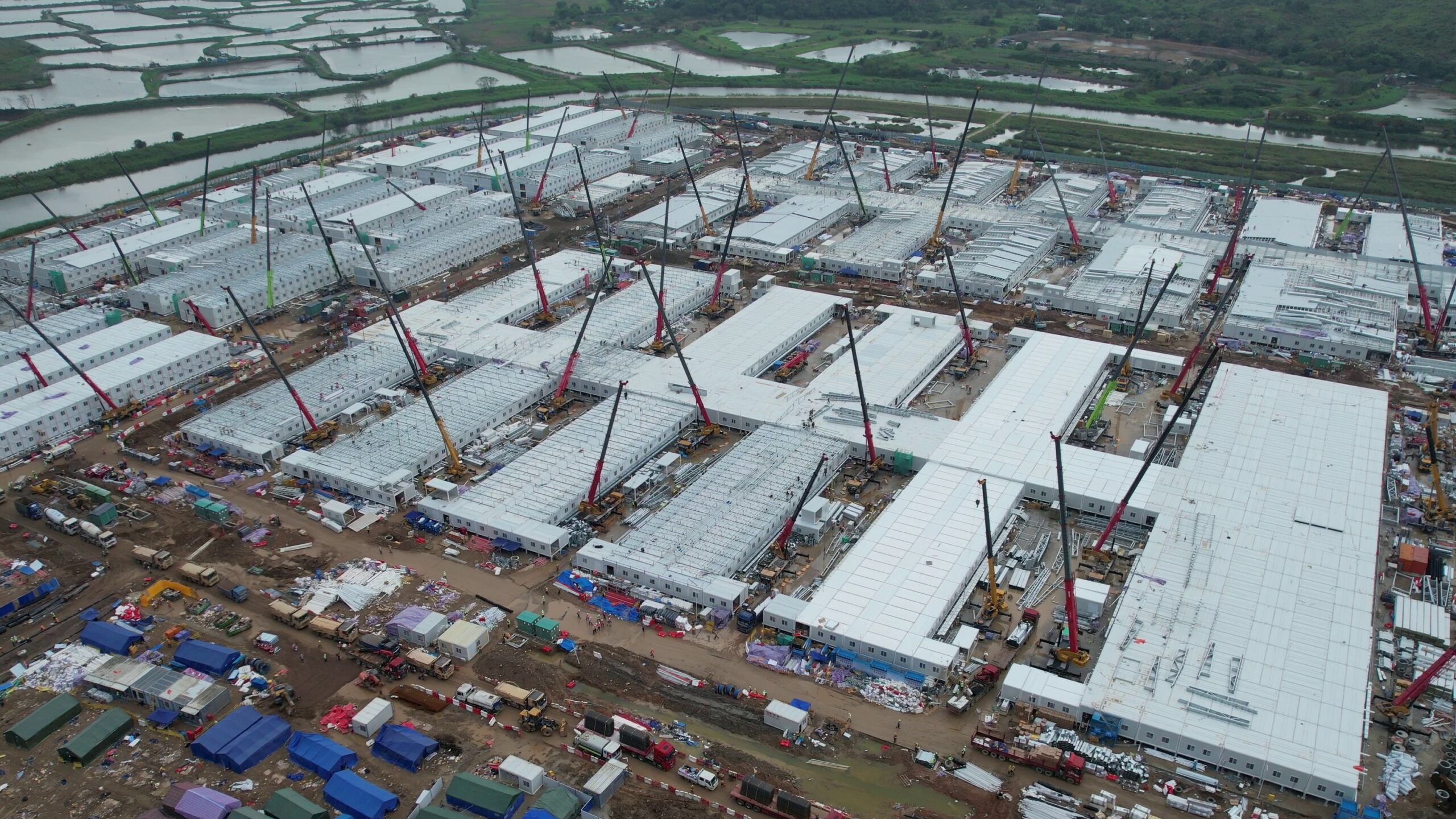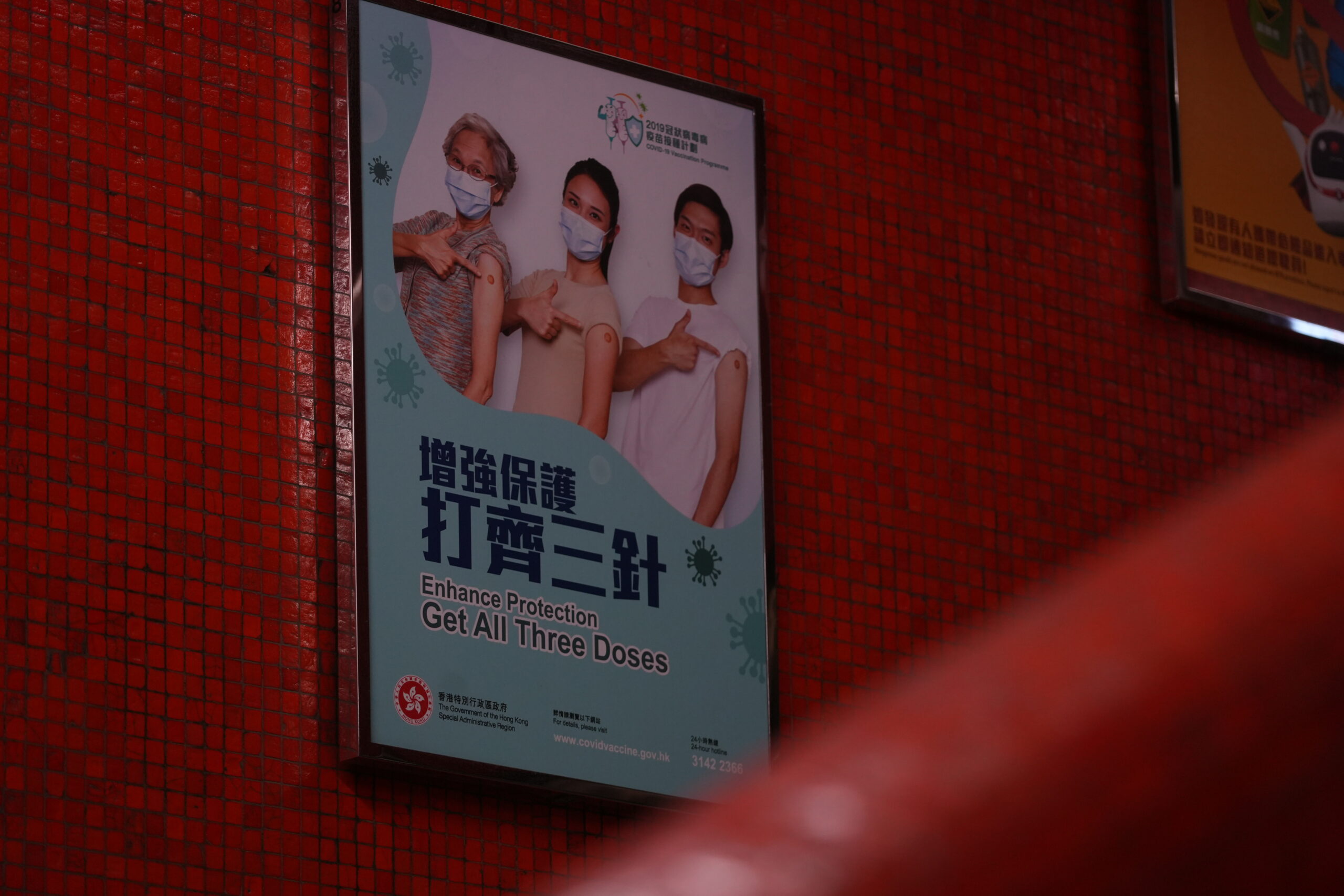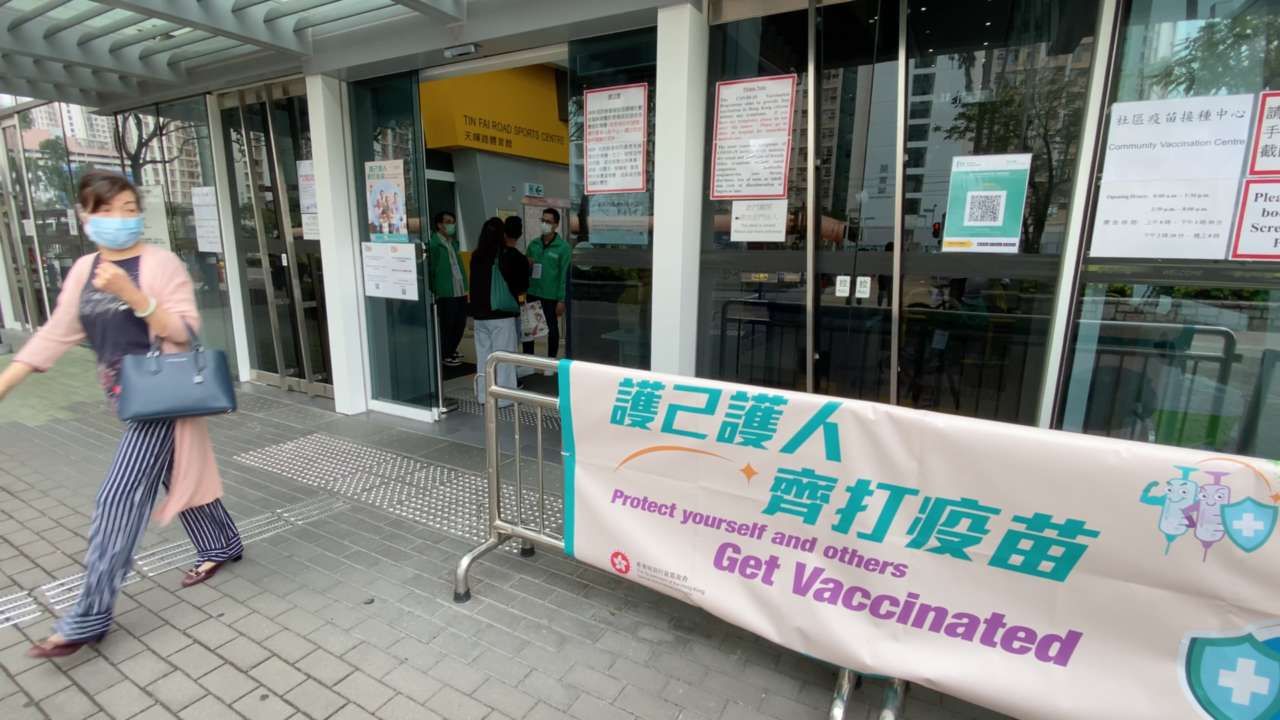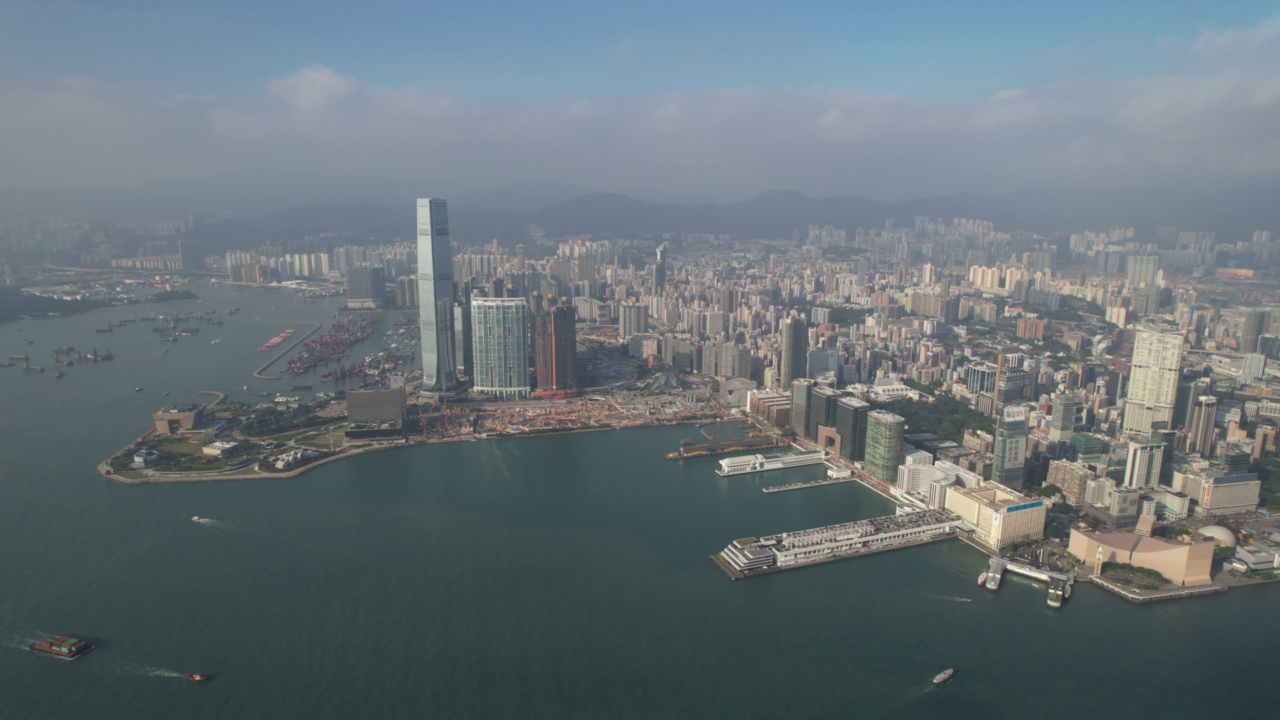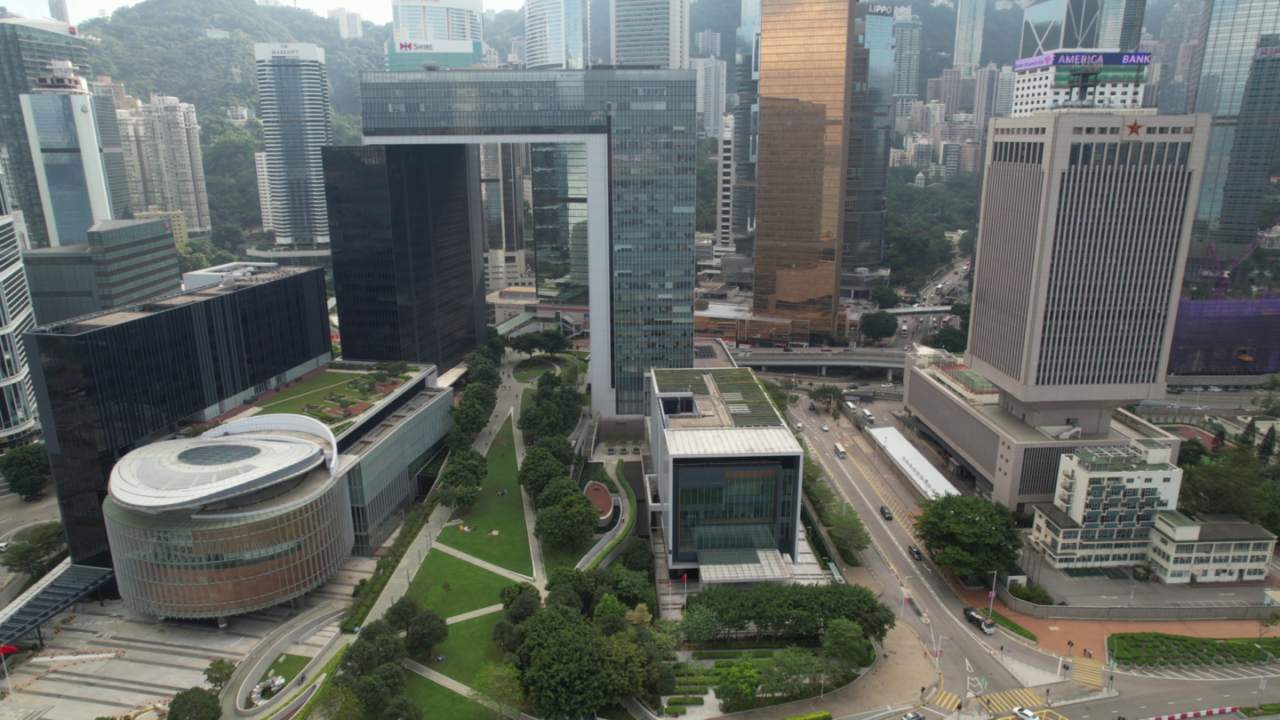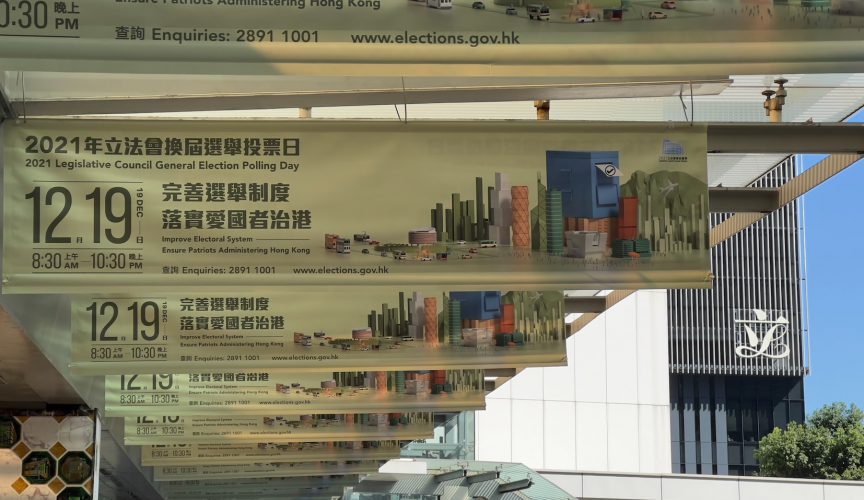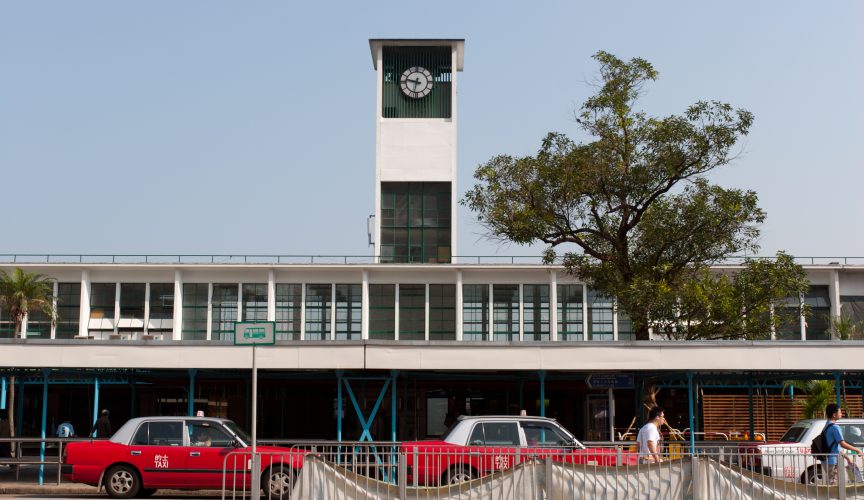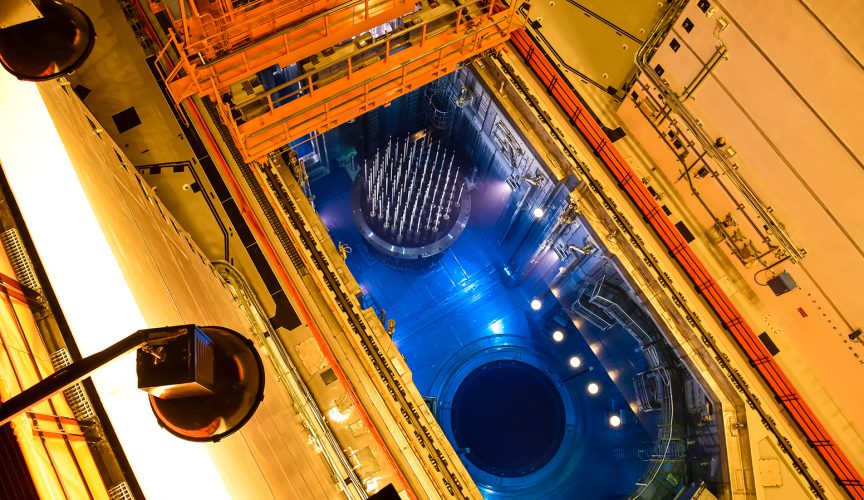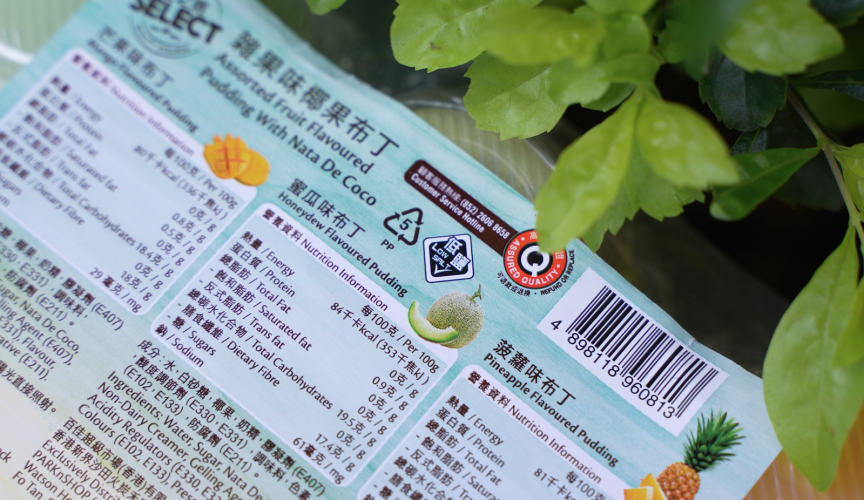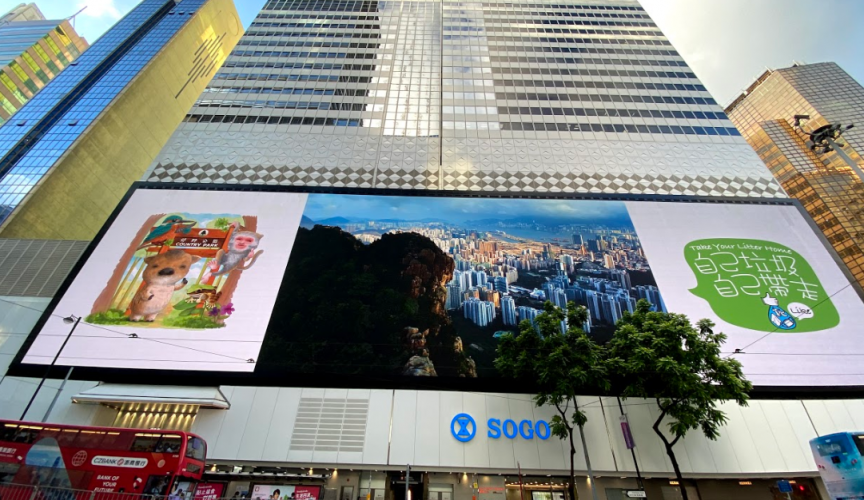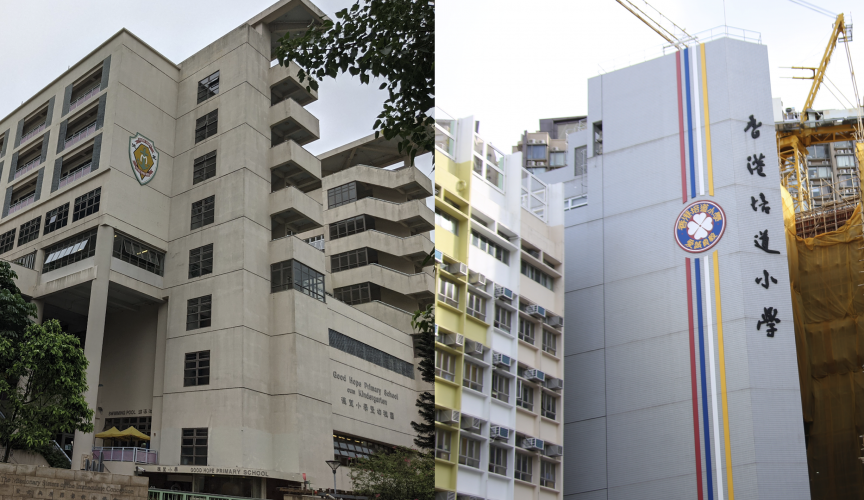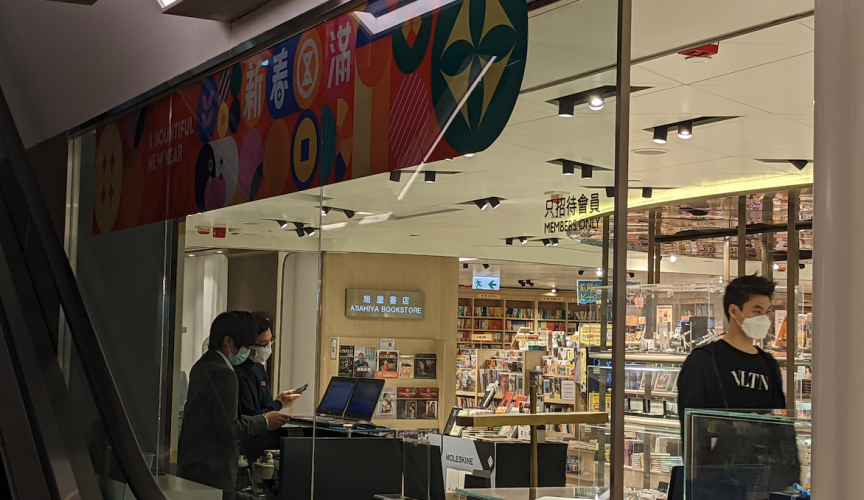62 takeaways with a food factory licence pose as restaurants in malls, buildings and the airport
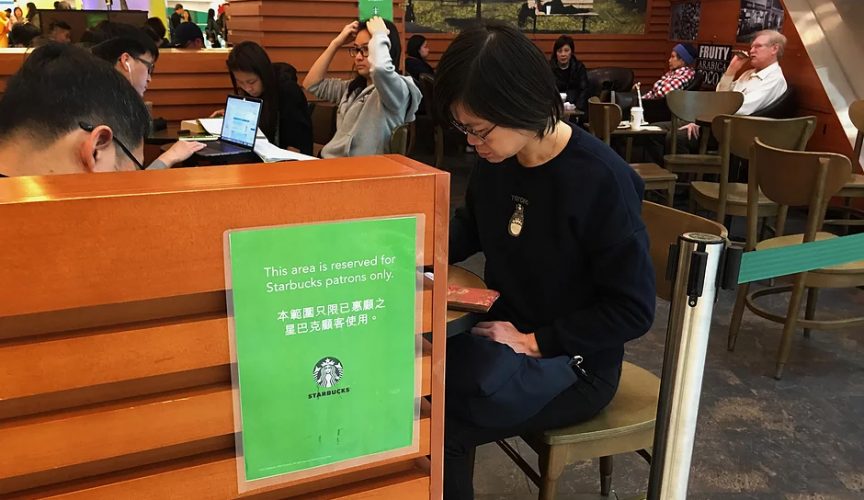
62 takeaways with a food factory licence pose as restaurants in malls, buildings and the airport without being charged, according to a FactWire investigation on unlicensed restaurants in major shopping malls.
FactWire reporters visited over 70 eateries in shopping malls, office towers and government buildings, and found that at least 62 coffee shops and small eateries with the food factory licence set up seats for customers, 40 of them located in shopping malls owned by a total of 20 property developers.
The 40 coffee shops and small eateries providing seats for customers while possessing a food factory licence include chain stores such as Starbucks, Pacific Coffee, Délifrance, Crostini, TOM N TOMS COFFEE, agnès b. Café and caffè HABITŪ.
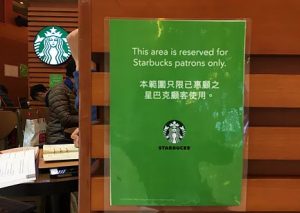
These coffee shops are scattered all across shopping malls in Hong Kong, including Festival Walk, Pacific Place, Tsuen Wan Plaza, New Town Plaza, Fortune Metropolis, Lok Fu Plaza, apm, iSQUARE, MegaBox, MOKO of Grand Century Place and PopCorn.
The malls renting out shop areas to eateries that breach the food factory licensing requirements involve at least 20 property developers, including Sun Hung Kai Properties (016), Henderson Land (012), Fortune REIT (778), Link REIT (823), Swire Properties (1972), MTR Corporation(066), Kowloon Dev (034), Sino Land (083), and Kerry Properties (683).
Information from the Food and Environmental Hygiene Department (FEHD) showed that there are 7,280 eateries operating with a food factory licence, also known as the ‘takeaway licence’, which refers to ‘any food business which involves the preparation of food for sale for human consumption off the premises’. This means that any food factory license holders setting up seats for customer use leads to a breach of licensing requirements.
Quoting the ‘Code on Access to Information’, FactWire reporters acquired the number and details of prosecution from the FEHD concerning eateries that run a food business without a licence. FactWire confirmed that the 62 eateries were not prosecuted for running an unlicensed restaurant last year.
This contrasts to food factory licence holder Kung Wo Bean Curd Factory in Sham Shui Po, prosecuted for three times in 2015 and 2016 by the FEHD for setting up seats for customers. According to the demerit points system for licensed food premises, 15 points were deducted for ‘operating other class of unlicensed food business on the premises’ and Kung Wo’s licence was suspended for five days in January.
Sources responsible for shopping mall tenancy agreements admitted that the developers acquiesced to, or even taught tenants with the food factory licence to ‘pose’ as restaurants in order to stimulate customers traffic and spending, while in fact, the seats should be available for public use.
Aside from Starbucks in Times Square, The Coffee Academics in Gateway Arcade of Harbour City and Arome Café in Metroplaza, where labels indicating ‘available for public use’ were found on the tables and chairs, all other eateries installed tables and chairs either inside the shop or along nearby corridors, FactWire reporters confirmed during a seven-month investigation.
The tables and chairs, designed to match the shop layout, are specifically provided for customers. Some waiters were seen to deliver food to customers, clean the tables afterwards and drive away users who did not purchase any food item.
The tables and chairs can be classified into three categories:
1) Seats installed in a rented shop located in a mall to ‘pose’ as restaurants (examples include Starbucks in Festival Walk, TOM N TOMS COFFEE in apm and Pacific Coffee in MOKO of Grand Century Place);
2) seats installed in a rented open area and nearby corridors in a mall, a small number of them indicating ‘only available for customer use’ (examples include Starbucks in MegaBox and agnès b. Café at the airport); and
3) seats installed in nearby corridors of a rented open area in shopping malls, with fences, tables and chairs used to separate the area, giving the impression of a open restaurant (examples include Starbucks in PopCorn and HomeSquare, Crostini in Tuen Mun Town Plaza and Pacific Coffee in Silvercord).
Representatives from the FEHD emphasized during a FEHD seminar on restaurant licensing on 8 February that food factory licence holders are forbidden to provide seats, pointing out that ‘the licence holders would be repeatedly prosecuted by the FEHD until finally losing their licences’ even if they acquired the food factory licence ‘with ease’.
Almost all shopping malls operate like this, however, upon renting out shops to eateries, added the informed sources.
When the shop areas, then marked for running coffee shops and small eateries, fail to comply with the fire safety requirements, the tenants would apply for a food factory licence instead of a restaurant licence and set up tables and chairs along the corridors to run the shop like a restaurant.
Informed sources stated that the eateries are exploiting a legal loophole. ‘That’s why in order to avoid the prosecution of the FEHD, a lot of small eateries offer only utensils made of paper, even for the customers eating there.
Should the FEHD officials come over for routine inspection, the staff could say the customers took the food and ate outside on their own, and therefore no regulations have been violated,’ sources added.
Another informed sources told FactWire that only the food and beverage industry ran pretty well amid a drop in the retail market sales last year, so many shopping malls pulled up the proportion of eateries to attract more customers. Takeaway shops posing as restaurants with installed tables and chairs are thus commonly found in malls.
‘The rent already included the tables and chairs, of course, but it differs in whether the shopping malls would include these into their agreements or not. The smart ones would not do so,’ sources stated, adding that the eateries and shopping malls knew about such problems. ‘Be it a co-operation or collusion, the most important thing is that it increases the income,’ sources added.
Informed sources emphasized that the tables and chairs are available for public use, that ‘it is an illusion the eateries created on purpose that the people have to make purchases to sit on the chairs’.
Some restaurant licence consultants told FactWire that to apply for a food factory licence from the FEHD, the eateries only have to hand in layout plans of the kitchen, food preparation room and hygiene facilities, whereas a complete layout plan of the rented area is not required.
‘The responsibility of the FEHD is to check and assess whether the kitchen facilities meet the licensing requirements on aspects such as the ventilation system or fire safety before issuing the licence,’ sources stated.
Four tenancy agreements illustrate how the shops used corridors or areas nearby for the shop’s own customer use. FactWire acquired four expired or current tenancy agreements belonging to the relevant coffee shops and small eateries from the Land Registry, and found the agreement details to be in accordance with information provided by sources.
Among them, the agreements of Tuen Mun Town Plaza and Sheung Shui Centre remained valid, while the agreements concerning New Town Plaza in Sha Tin and Nina Tower in Tsuen Wan ended in 2007 and 2015 respectively. However, the coffee shops still operate at the same shop location, so the agreements may have been renewed and yet to be updated by the Land Registry.
In 2014, Delifrance (Hong Kong) Limited signed a tenancy agreement with Bayman Limited under Sunlight REIT (435), the landlord of Sheung Shui Centre, on renting out two shops on the second floor of its shopping arcade, with a tenancy of three years expiring on July 30.
The tenancy agreement attached a floor plan, specifying that the part coloured pink is the area rented by Délifrance, and the area colored orange on the plan is the nearby corridors. The agreement states except the area coloured orange on the plan, the landlord has ‘the right to alter and modify the layout of the said building’, provided that ‘such alterations and modifications shall not significantly affect the tenant’s use and access of the premises’. The agreement was drafted in a way that creates an objective effect implying that the landlord would not affect the right of Délifrance to use the corridors in the orange area.
However, the eatery installed seats in the nearby corridors without a proper restaurant licence, FactWire reporters confirmed during a site visit. While a FEHD food factory licence label was found on the bar of Délifrance, labels indicating ‘enjoy Délifrance Delicacy here’ were visible on the tables and chairs situated at the orange corridor area highlighted on the plan. Waiters delivered meals to customers and cleared the table afterwards.
Coffee Concepts (Hong Kong) Limited, a joint venture of U.S. coffee company Starbucks and Maxim’s Group, signed a tenancy agreement with Jade Mate Limited under Sino Group for three shops located on the upper ground floor of Tuen Mun Town Plaza Phase One. The four-year tenancy will expire on 13 October in the coming year.
The floor plan marks the area rented by Starbucks in pink and the blue area next to it as the ‘seating area’. The agreement states that Starbucks shall ‘at his own cost maintain the cleanliness of the common area between the Premises and Seating Area’.
Tables and chairs were set up within the rental area against the licensing requirements, and the blue area assigned for ‘Seating Area’ was installed with rugs, tables and chairs of similar design as to the shop layout. A Starbucks logo and menu was put up, giving an impression that the seats belong to Starbucks.
While the floor plan of the shopping mall shows that the bar, cupboard and cashier of Starbucks are located in one shop, the two other shops are not shown.
Pacific Coffee is the tenant in the two other tenancy agreements for the shops in the Nina Tower under Chinachem Group and New Town Plaza under Sun Hung Kai Properties, renting an open area in both shopping malls.
Tables and chairs were installed within the rental area of both shops, and they were used along with fences to separate the eatery area and the corridors. The coffee shop located on the sixth floor of New Town Plaza in Sha Tin is especially busy during the weekends, yet a notice indicating ‘seats only available for customer use; please make a purchase before usage’ was found in the shop, and waiters cleared up the tables from time to time.
Since the law does not require landlords or tenants to make public their tenancy agreements, the details, areas and functions of 36 other eateries remain unknown.
In addition to the 40 shopping malls, FactWire reporters visited office towers and government buildings and found that at least 20 coffee shops or small eateries situated on the ground floor of officer towers and two at the airport also hold a food factory licence yet set up tables and chairs in its operations.
The ‘Food Business Regulation’ states that all restaurants providing seats must acquire a general restaurant licence or a light refreshment restaurant license issued by the FEHD to operate legally. The application procedures for the food factory licence and light refreshment restaurant licence are more or less the same, except that food factories could not arrange seats for customer use.
Based on information such as the area and type of fuel used, the FEHD would consult various departments including the Fire Services Department, Buildings Department, Housing Authority, Architectural Services Department, Planning Department, etc.
The FEHD states that it would not refer the case to the Fire Services Department if the eatery applying for the food factory licence is smaller than 100 sq metres, uses only electricity as fuel, flame cooking and includes no fried dishes on the menu. For applications concerning the general restaurant licence and the light refreshment restaurant license, however, the department would refer them to the Fire Services regardless of the area and food type.


